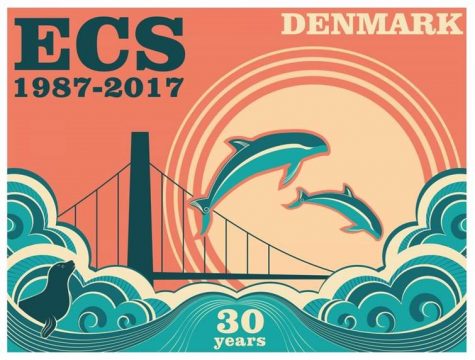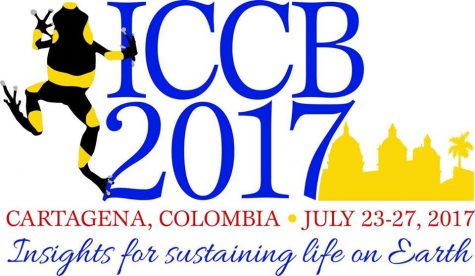Are you working on Marine Mammal trophic ecology using either stable isotopes or network analysis to construct and understand food webs? PR statistics has two courses scheduled for early 2017 aimed specifically at understand and building food webs using stable isotopes and/or stomach contents
Stable Isotope Mixing Models using SIAR, SIBER and MixSIAR (SIMM03) Delivered by Dr. Andrew Parnell and Dr. Andrew Jackson https://www.prstatistics.com/…/stable-isotope-mixing-models…/
AND
Network analysis for ecologists (NTWA01) Delivered by Dr.Marco Scotti https://www.prstatistics.com/…/network-analysis-ecologists-…/
Both courses will take place at Millport field centre, Isle of Cumbrae, Scotland (please note that although the filed centre in on an island it is extremely easy and uncomplicated to reach by public transport form both within and outside the UK). SIMM03 is a 4 day course and will run from 28th -3rd March 2017 and NTWA01 is a 5 day course will run from 6th – 10th March 2017.
A COMBINED COURSE PACKAGE IS AVAILABLE)
SIMM03
This course will cover the concepts, technical background and use of stable isotope mixing models (SIMMs) with a particular focus on running them in R. This course will cover the concepts, technical background and use of stable isotope mixing models (SIMMs) with a particular focus on running them in R. Recently SIMMs have become a very popular tool for quantifying food webs and thus the diet of predators and prey in an ecosystem.
Starting with only basic understanding of statistical models, we will cover the do’s and don’ts of using SIMMs with a particular focus on the widely used package SIAR and the new, more advanced MixSIAR.
Participants will be taught some of the advanced features of these packages, which will enable them to produce a richer class of output, and are encouraged to bring their own data sets and problems to study during the round-table discussions.
NTWA01
The first graphical representation of a food web dates back to 1880, with the pioneering works of Lorenzo Camerano. Since then, research on ecological networks has further developed and ecology is one of the
fields that contributed the most to the growth of network science.
Nowadays, ecologists routinely apply network analysis with a diverse set of objectives that range from studying the stability of ecological communities to quantifying energy flows in ecosystems.
The course is intended to provide the participants theoretical knowledge and practical skills for the study of food webs. First, lessons and exercises will introduce basic principles of network theory. Second, ecological examples will be focused on binary food webs, networks depicting who eats whom in ecosystems. Algorithms quantifying either
global food web properties or single species features within the trophic network will be introduced. Third, we will study how the architecture of the food webs can be used to investigate robustness to biodiversity
loss, thus helping to predict cascading extinction events. Then, ecosystem network analysis (ENA), a suite of matrix manipulation routines for the study of energy/matter circulation in ecosystems, will be presented. We will apply ENA to characterize the trophic structure of food webs and quantify the amount of cycling in ecosystems. Finally, we
will learn how to visualize food web graphs to illustrate their features in an intuitive and fancy way.
Please email any inquiries to oliverhooker@prstatistics.com or visit our
website www.prstatistics.com
Upcoming courses – email for details oliverhooker@prstatistics.com
1. MODEL BASED MULTIVARIATE ANALYSIS OF ECOLOGICAL DATA USING R (January
2017) #MBMV
https://www.prstatistics.com/…/model-base-multivariate-anal…/
2. ADVANCED PYTHON FOR BIOLOGISTS (February 2017) #APYB
https://www.prstatistics.com/…/advanced-python-biologists-a…/
3. STABLE ISOTOPE MIXING MODELS USING SIAR, SIBER AND MIXSIAR USING R
(February 2017) #SIMM
https://www.prstatistics.com/…/stable-isotope-mixing-models…/
4. NETWORK ANAYLSIS FOR ECOLOGISTS USING R (March 2017) #NTWA
https://www.prstatistics.com/…/network-analysis-ecologists-…/
5. ADVANCES IN MULTIVAIRAITE ANALYSIS OF SPATIAL ECOLOGICAL DATA (April
2017) #MVSP
https://www.prstatistics.com/…/advances-in-spatial-analysis…/
6. INTRODUCTION TO STATISTICS AND R FOR BIOLOGISTS (April 2017) #IRFB
https://www.prstatistics.com/…/introduction-to-statistics-a…/
7. ADVANCING IN STATISTICAL MODELLING USING R (April 2017) #ADVR
https://www.prstatistics.com/…/advancing-statistical-modell…/
8. INTRODUCTION TO BAYESIAN HIERARCHICAL MODELLING (May 2017) #IBHM
https://www.prstatistics.com/…/introduction-to-bayesian-hie…/
9. GEOMETRIC MORPHOMETRICS USING R (June) #GMMR
https://www.prstatistics.com/…/geometric-morphometrics-usin…/
10. MULTIVARIATE ANALYSIS OF SPATIAL ECOLOGICAL DATA (June 2017) #MASE
https://www.prstatistics.com/…/multivariate-analysis-of-spa…/
11. BIOINFORMATICS FOR GENETICISTS AND BIOLOGISTS (July 2017) #BIGB
https://www.prstatistics.com/…/bioinformatics-for-geneticis…/
12. SPATIAL ANALYSIS OF ECOLOGICAL DATA USING R (August 2017) #SPAE
https://www.prstatistics.com/…/spatial-analysis-ecological-…/
13. ECOLOGICAL NICHE MODELLING (October 2017) #ENMR
https://www.prstatistics.com/…/ecological-niche-modelling-u…/
14. APPLIED BAYESIAN MODELLING FOR ECOLOGISTS AND EPIDEMIOLOGISTS
(November 2017)
https://www.prstatistics.com/…/applied-bayesian-modelling-e…/
15. GENETIC DATA ANALYSIS USING R (October TBC)
16. INTRODUCTION TO BIOINFORMATICS USING LINUX (October TBC)
17. LANDSCAPE (POPULATION) GENETIC DATA ANALYSIS USING R (November TBC)
18. PHYLOGENETIC DATA ANALYSIS USING R (November TBC)
19. INTRODUCTION TO METHODS FOR REMOTE SENSING (December 2017 TBC)
20. ADVANCING IN STATISTICAL MODELLING USING R (December 2017 TBC)
21. INTRODUCTION TO PYTHON FOR BIOLOGISTS (December 2017 TBC)
22. DATA VISUALISATION AND MANIPULATION USING PYTHON (December 2017
TBC)
Oliver Hooker PhD. PR statistics 128 Brunswick Street Glasgow
www.prstatistics.com
www.prstatistics.com/organiser/oliver-hooker/

